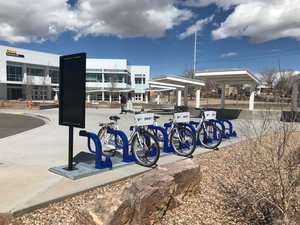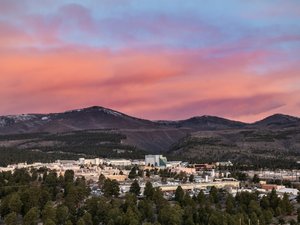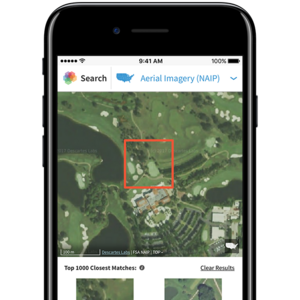
The U.S. Economic Development Administration on Tuesday named a coalition of companies, higher education institutions and other organizations in New Mexico and Colorado one of 12 tech hub grant recipients, an award that'll unlock upwards of $125 million for the two states to spur the development of the region's quantum industry.
Called Elevate Quantum, the 120-member quantum consortium between New Mexico and Colorado was named one of 31 regional tech hubs in October 2023. That designation under the U.S. Tech Hubs program, enacted as part of the CHIPS and Science Act of 2022, opened up the coalition to bid for up to $75 million through a phase-two funding opportunity.
Following its successful bid, Elevate Quantum is set to receive $40.5 million through a federal implementation grant for its regional quantum plans, said Zachary Yerushalmi, the consortium's CEO and regional innovation officer.
More regional funding, however, comes through state dollars. Colorado pledged $77 million in matching funds for the state's quantum industry, Yerushalmi said, and New Mexico committed $10 million of its own in matching funds.
New Mexico would get $10 million from the $40.5 million in federal funding, as well, bringing the Land of Enchantment's total between federal and state funds to $20 million. Some of Elevate Quantum's members in the state include Central New Mexico Community College, the University of New Mexico (UNM), New Mexico State University and two of the state's national laboratories — Los Alamos National Laboratory and Sandia National Laboratories.
Overall, New Mexico and Colorado's quantum industries will gain access to $127.5 million in federal and state dollars. A contract between Elevate Quantum and the U.S. Economic Development Administration (EDA), which would lock in the federal funding and establish timelines for specific program implementation, is still being finalized, Yerushalmi said.
New Mexico's portion of the funding, specifically, would go toward two programs, he said — a facility to help firms with fabrication and manufacturing of quantum technology components, and quantum workforce development.
The fabrication facility would sit "at the end of the production chain" for component manufacturing "critical" to developing quantum companies, Yerushalmi said. The idea is to help companies complete the final stages of their production processes in New Mexico — at a planned physical facility in Albuquerque in partnership with UNM and CNM Ingenuity, the entrepreneurship arm of Central New Mexico Community College — instead of having to leave the state for that work, he added.
One part of Elevate Quantum's workforce development plans in New Mexico would be a mobile "Quantum Learning Lab" to provide trainees "all the basic skills that you need in order to be a technician," Yerushalmi said. Some money would go toward quantum curriculum-based efforts, too, at colleges and universities in the state.
More details on the timeframe for those programs would come after the contract between Elevate Quantum and the EDA is finalized, Yerushalmi said, which he added could happen "reasonably soon."
Alex Greenberg, economic development advisor for the Office of Gov. Michelle Lujan Grisham and Elevate Quantum board member, said the EDA grant award shows New Mexico — and the broader Mountain West region — is "open for quantum business."
While New Mexico has for decades been strong in terms of quantum-related research at spots like the University of New Mexico, Los Alamos National Laboratory and Sandia National Labs, the state's private sector quantum industry has lagged neighboring Colorado, which is home to established quantum companies like Quantinuum and Maybell Quantum.
Greenberg sees the federal grant award as a boon for the development of more quantum companies in the state. Quantum science — like quantum computing or quantum information technology — can act as a "leveraging technology" for other industries, too, he added.
"This is a space that we can really grow to dominate," Greenberg said. "We have some unique core competencies, in that they can't be replicated in other regions."
A regional hub in the Midwest between Illinois, Indiana and Wisconsin called The Bloch — one of the 31 initial tech hub designees — was also in the running for the phase-two implementation grant award, but it missed out on those federal dollars.
"Tech Hub designation is only the beginning for the quantum industry in New Mexico," Gov. Michelle Lujan Grisham said in a statement. "Our state has a long history of innovation and embracing frontier technologies, and it's possible that quantum-enabled technology could become the most game-changing innovation of this generation."
Greenberg said developing more quantum companies could provide many "highly paid, sustainable" job opportunities for workers in New Mexico. That includes for folks with doctorates or other advanced quantum-related degrees, and for folks with technical certifications or two-year degrees.
Elevate Quantum, specifically, wants to help create over 10,000 quantum jobs in the region by 2030, Yerushalmi, the consortium's CEO, said. He added that a vast majority of those jobs don't require four-year degrees and that Elevate Quantum is focused on extending job opportunities to historically underserved groups in the Mountain West.
The coalition expects future funding opportunities to become available, past this initial implementation grant, Yerushalmi added. The CHIPS and Science Act authorized $10 billion for the national Tech Hubs program over a five-year period; EDA has been appropriated $541 million of that $10 billion total to date.
Other Tech Hubs that landed implementation grants include a lithium batteries and electric vehicle materials-focused hub led by the University of Nevada, Reno, an autonomous systems hub led by Tulsa Innovation Labs in Oklahoma and a hub focused on "photonic sensor systems" in Montana, according to an EDA press release. Grant awards ranged from $21 million to $51 million, totaling $504 million in federal funding.









